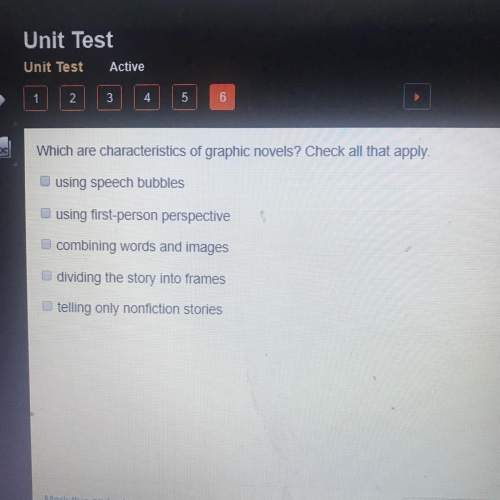
English, 21.03.2020 01:50 sidthesciencekidz
Last sentence, "I was sixteen." Throughout the pages, Elie describes the incident between a nearby father and son. Why does he end this story with the phrase, "I was sixteen."? What is he implying about this experience?

Answers: 3


Another question on English

English, 22.06.2019 03:40
Returning from vietnam, we were given a parade. crowds of screaming people waving signs — not just on one road, one day. no, they were everywhere. every day. on the streets, on the television, on the radio. a hot, angry tangle of shaking fists and ugly words that threatened us like a monster with a hundred heads. our country had chewed us up and spit us out, and now we were being treated as if it were our fault. which sentence best uses figurative language to match the paragraph's tone? a. our feet were frozen in place as the street itself strained to hold us back. b. i felt unappreciated and condemned for actions i had thought were heroic. c. i hadn't expected to find myself in a rags-to-riches situation such as this. d. we had come home to a feeding frenzy and were being treated as bait.
Answers: 3


English, 22.06.2019 05:30
How does the author of finding flight incorporate ideas from the poem hope is the only thing with feathers into her work
Answers: 2

English, 22.06.2019 06:10
Which statement explains why elie wiesel most likely wrote all rivers run to the sea as a memoir
Answers: 1
You know the right answer?
Last sentence, "I was sixteen." Throughout the pages, Elie describes the incident between a nearby f...
Questions





Mathematics, 14.02.2020 18:30





Biology, 14.02.2020 18:30





Mathematics, 14.02.2020 18:30




Mathematics, 14.02.2020 18:30




